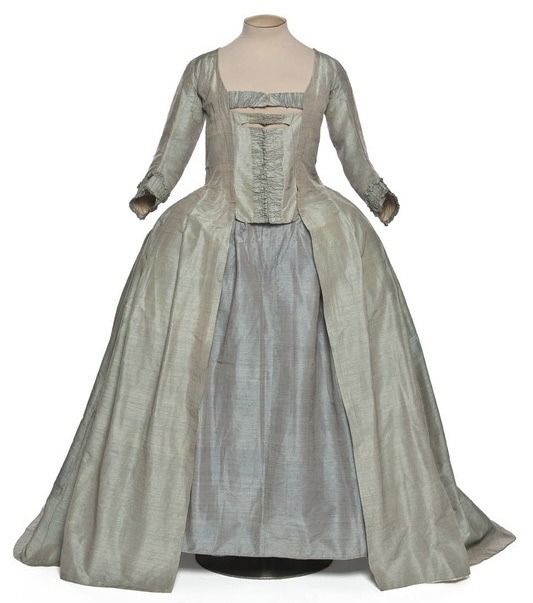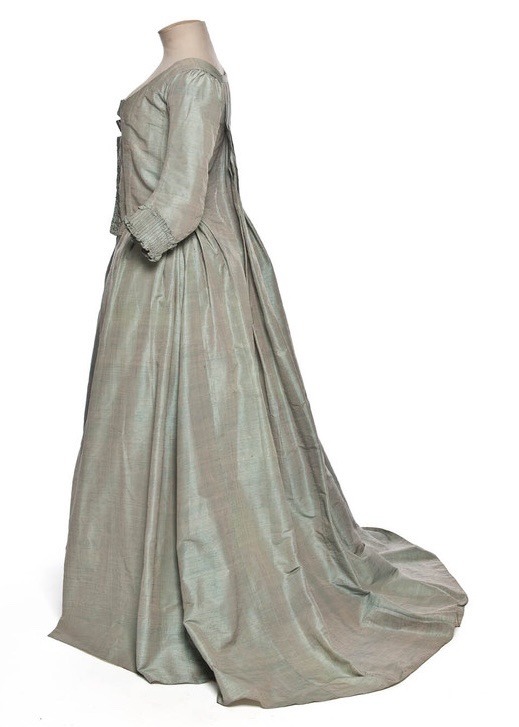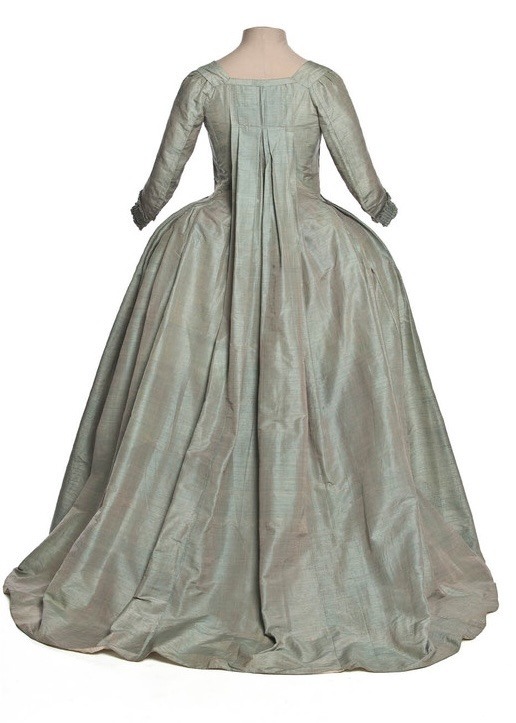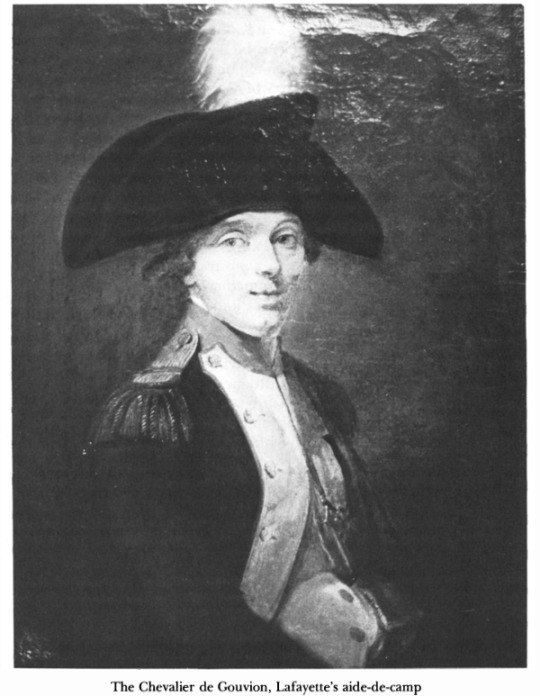#1771
Explore tagged Tumblr posts
Text

context from the submitter: Chikurin shichiken sono ni by Isoda Koryusai (1771)
submitted by @flamingspitballs 🧡🤎🩷
#historical fashion poll submission#historical fashion polls#fashion poll#historical dress#historical fashion#dress history#fashion history#fashion plate#18th century costume#18th century dress#18th century fashion#18th century#mid 18th century#late 18th century#1770s#1771#skirt
76 notes
·
View notes
Text

64 notes
·
View notes
Text

Self-Portrait with Spectacles (1771) by Jean-Baptiste-Siméon Chardin
#Self-Portrait with Spectacles#1770s#1771#Jean-Baptiste-Siméon Chardin#art#painting#portrait#portrait painting#self portrait#Miss Cromwell
18 notes
·
View notes
Photo


on my way home
297 notes
·
View notes
Text

Reception room at Ely House, Dublin .. @theirishaesthete ..
6 notes
·
View notes
Text
Found this really cute sequence of screencaps and I just have to share them.





And a little bonus…hehe.

previous - beginning - next
#the vergara legacy#inés vergara#luther frick#1770s#1771#sims 4#sims 4 historical#sims 4 historical gameplay#sims 4 legacy#ts4 gameplay#ts4 legacy#ts4 story#sims 4 screenshots#sims 4 gameplay#ts4 historical#ts4 screenshots#ts4#the sims 4#simblr#sims community#ts4 simblr
8 notes
·
View notes
Text



Blue Silk Robe à la Française, 1770-1779, French.
Musée des Arts Décoratifs Paris.
#womenswear#extant garments#dress#silk#18th century#mad Paris#musée des arts décoratifs paris#1770#1770s#1770s dress#1770s france#France#French#robe à la française#reign: louis xvi#reign: louis xv#1771#1772#1773#1774#1775#1776#1777#1778#1779#1770s extant garment
34 notes
·
View notes
Text
Among the vocal performers I had the happiness to hear the celebrated Mrs. —, whose voice was so loud and so shrill, that it made my head ake through excess of pleasure.
Tobias Smollett, The Expedition of Humphry Clinker
#the expedition of humphry clinker#tobias smollett#1771#1770s#18th century#scottish literature#queue pierce my soul
10 notes
·
View notes
Text

Letitia Leigh, Thomas Gainsborough, 1768-71
#Letitia leigh#Thomas gainsborough#gainsborough#1768#1769#1770#1771#1760s#1770s#1700s#18th century#portrait#painting#art
12 notes
·
View notes
Text
2 notes
·
View notes
Text

Jean-Honoré Fragonard, L’Amant couronné, 1771.
2 notes
·
View notes
Text
24 Days of La Fayette: December 22nd – Jean-Baptiste, Chevalier de Gouvion

Idzerda Stanley J. et al., editors, Lafayette in the Age of the American Revolution: Selected Letters and Papers, 1776–1790, Volume 3, April 27, 1780–March 29, 1781, Cornell University Press, 1980, p. 251.
Jean-Baptiste, Chevalier de Gouvion was born on January 8, 1747 to Jean François Gouvion and Marguerite Catherine Olry. He was the oldest of at least thirteen children. His father was a police officer and several of his brothers and cousins found their way into the army, often as engineer’s and often in high-ranking positions. At least one of his cousins was later knighted – like Gouvion himself.
Gouvion joined the army as an engineer. He had been commissioned first lieutenant of engineers in 1771, and later decided to join the War in America. He became a brevet captain shortly prior to his departure. Contrasting to La Fayette, Gouvion was permitted to do so. He sailed from Nantes on March 5, 1777 with a group of French military engineers. The expedition was organized by Benjamin Franklin. The group arrived in North Carolina and travelled to Philadelphia, there to present themselves to the Continental Congress on July 5, 1777. He was granted the rank of major of engineers and on November 17, 1777 he was made a lieutenant-colonel.
The Marquis de La Fayette valued Gouvion’s skills and character and after a visit to several native American tribes, La Fayette send Gouvion to oversee the construction of a small fort. He wrote in his Memoirs:
The Oneidas and the Tuscaroras, our only true friends, asked for a fort, and M. de Lafayette left with them M. de Gouvion, a French officer who had a rare combination of intelligence, talent, and virtue. Whenever the army needed Indians, or there was any business to be conducted with those tribes, they always had recourse to the influence of M. de Lafayette, whose necklaces and words the Indians respected.
Idzerda Stanley J. et al., editors, Lafayette in the Age of the American Revolution: Selected Letters and Papers, 1776–1790, Volume 1, December 7, 1776–March 30, 1778, Cornell University Press, 1977, p. 248.
Gouvion enjoyed La Fayette’s complete trust, and his skills soon impressed several other officers, amongst them George Washington. Gouvion was accompanied by another man that would go one to become one of La Fayette’s aide-de-camps – Louis Tousard. When Gouvion’s work was finished, La Fayette wrote to Henry Laurens on June 7, 1778:
Clel. Gouvion is just coming from the indians. That gentleman has been of a greater use to America among them than it is possible to say. It is uncommon to join a greater modesty, to greater science, more agreable [illegible word] and more profound parts as an officer and gentleman.
Idzerda Stanley J. et al., editors, Lafayette in the Age of the American Revolution: Selected Letters and Papers, 1776–1790, Volume 2, April 10, 1778–March 20, 1780, Cornell University Press, 1978, p. 71.
Gouvion found himself again in the employ of La Fayette during the continuation of the campaign of 1778. The Marquis wrote to the Comte D’Estaing on July 30, 1778:
Since General Washington told me to take an engineer with me, I took and now send to Providence M. de Gouvion, captain in France in the engineering regiment, who lives up to the most flattering idea one might have of him.
Idzerda Stanley J. et al., editors, Lafayette in the Age of the American Revolution: Selected Letters and Papers, 1776–1790, Volume 2, April 10, 1778–March 20, 1780, Cornell University Press, 1978, pp. 124-125.
On the same day, La Fayette also wrote to General John Sullivan with whom he was supposed to rendezvous:
I send forward to you Lt. Colonel Gouvion of the engeneers whom I have brought with me. He is one of the most sensible and worthy gentlemen I ever met with. His military knowledge in the engeneery way is compleat. In a word I have selected and desir’d him from Gal. Porta'll as the very man I was glad to have with us.
Idzerda Stanley J. et al., editors, Lafayette in the Age of the American Revolution: Selected Letters and Papers, 1776–1790, Volume 2, April 10, 1778–March 20, 1780, Cornell University Press, 1978, p. 126.
By the end of 1778, Gouvion worked for Major General Alexander McDougall at West Point. McDougall wrote to George Washington on December 10, 1778:
But to effect this, and secure West Point, I shall want more heavy Cannon, I wish therefore to have your Excellency’s Order for those at Boston, which I am informed are subject to it. Cannot Some of the Somerset’s Cannon be procured for those important purposes? If either can be procured, no Time should be lost. It is for those Services I request Colonel Delaradiere or Lieut. Colonel Gouvion to be with me, to assist me in whatever I may be deficient in Science. The latter I would prefer, if he is equally qualifyed. (…) I have directed Lieutenant Colonel Gouvion the Engeneer, to repair to West Point with me to make an accurate Report of the present State of the works.
“To George Washington from Major General Alexander McDougall, 10 December 1778,” Founders Online, National Archives, [Original source: The Papers of George Washington, Revolutionary War Series, vol. 18, 1 November 1778 – 14 January 1779, ed. Edward G. Lengel. Charlottesville: University of Virginia Press, 2008, pp. 389–393.] (07/04/2023)
George Washington replied on December16, 1778:
You will detain Colo. Gouvion with you ’till you hear further on the subject. General Du Portail, to whom I generally leave the particular arrangements of his Corps, is now at Philadelphia. Inclosed is a line to Mr Gouvion directing him to continue with you ’till further orders.
“From George Washington to Major General Alexander McDougall, 16 December 1778,” Founders Online, National Archives, [Original source: The Papers of George Washington, Revolutionary War Series, vol. 18, 1 November 1778 – 14 January 1779, ed. Edward G. Lengel. Charlottesville: University of Virginia Press, 2008, pp. 425–426.] (07/04/2023)
McDougall was delighted by Gouvion’s work and Gouvion would continue to work at West Point and surrounding sites like Stoney Point and King’s Ferry for the whole of 1779. He lend his talents to Generals Wayne, Woodford and Heath among others.
By August of 1779 he took a short break from his engineering duties and sat on the court martial for Colonel Armand. See the General Orders from August 5, 1779:
The Commander in Chief directs a General Court Martial to sit at the ussual place tomorrow morning ten ôclock for the trial of Colonel Armand. Colonel Stewart to preside. Colonel Gouvion, Lieutenant Colonels Ford, Dubuisson & Littlefield; Majors De La Neuville, Leavensworth & Ville Franche Captain Du Ponceau and a Captain from the Maryland Pennsylvania and Connecticutt Lines and the Garrison to attend as Members.
“General Orders, 5 August 1779,” Founders Online, National Archives, [Original source: The Papers of George Washington, Revolutionary War Series, vol. 22, 1 August–21 October 1779, ed. Benjamin L. Huggins. Charlottesville: University of Virginia Press, 2013, pp. 35–37.] (07/04/2023)
By early 1780, the question of Gouvion’s future in the Continental Army arose. Washington wrote a letter on January 2, 1780 to Samuel Huntington:
Congress were pleased by their resolution of the 1st of January last to express their desire of retaining Brigadier General Du Portail, Colonels La Radiere and Laumoy, and Lt Col. De Gouvion in the service of these states for another campaing, if agreeable to them. These gentlemen having accepted the invitation, have now completed the term to which it extended; and it is with pleasure I can inform Congress that their subsequent conduct has more than justified the opinio⟨n⟩ expressed in my letter on which that resolution is founded. They have been particularly useful in the course of this last period, and have acquired general esteem and confidence⟨.⟩ I cannot forbear adding that the better the gentleman at the head of the corps is known the more he is found to be a man of abilities, and of distinguished military merit.
“From George Washington to Samuel Huntington, 2 January 1780,” Founders Online, National Archives, [Original source: The Papers of George Washington, Revolutionary War Series, vol. 24, 1 January–9 March 1780, ed. Benjamin L. Huggins. Charlottesville: University of Virginia Press, 2016, pp. 8–10.] (07/04/2023)
Prompted by a letter from Brigadier General Duportail from April 2, 1780 to George Washington, Gouvion was for a short time transferred to Washington’s command. The commander-in-chief wrote on April 28, 1780 to Major General Robert Howe:
General DuPortail being gone to the Southward, it is necessary that Col. Gouvion should repair to this army. If there are any previous arrangements you wish him to make, you will be pleased to direct him to make them and to set out for Head Quarters as speedily as he can.
“From George Washington to Major General Robert Howe, 28 April 1780,” Founders Online, National Archives, [Original source: The Papers of George Washington, Revolutionary War Series, vol. 25, 10 March–12 May 1780, ed. William M. Ferraro. Charlottesville: University of Virginia Press, 2017, pp. 505–506.] (07/04/2023)
These arrangements did not last long however, since Gouvion’s arrival was delayed and by June 26, 1780, Washington had ordered Gouvion to return to West Point. Therefore, by 1780, Gouvion again worked on the fortifications of West Point. In General Duportail’s absence, he was the commander of the corps of engineers and effectively displaced Colonel Thaddeus Kosciuszko, who had previously been the chief engineer at West Point. Kosciuszko wrote Washington on July 30, 1780:
To this day I have not received your Excellencys order respecting my destination, having nothing to do at present as all the artifficers are directed to receive Leut. Colo: Gouvions orders, I beg your Excellency to give me permision to leave the Engeneer Department and direct me a Command in the Light Infantry in the Army under your immediate Command or the Army at the Southward agreable to my ranck I now hold.
“To George Washington from Colonel Thaddeus Kosciuszko, 30 July 1780,” Founders Online, National Archives, [Original source: The Papers of George Washington, Revolutionary War Series, vol. 27, 5 July���27 August 1780, ed. Benjamin L. Huggins. Charlottesville: University of Virginia Press, 2019, p. 359.] (07/04/2023)
It was around this time, in late 1780, after Arnolds Treason, that Gouvion wished to join La Fayette as an aide-de-camp. The Marquis wrote Nathanael Greene on November 10, 1780:
Upon My Giving a hint to Clel. Gouvion that I had Some desire of joining you, he has Earnestly Requested I would take him as a Volonteer aid de Camp.
Idzerda Stanley J. et al., editors, Lafayette in the Age of the American Revolution: Selected Letters and Papers, 1776–1790, Volume 3, April 27, 1780–March 29, 1781, Cornell University Press, 1980, p. 223.
Shortly after Arnold’s treason has become public, Gouvion with a small party of men had arrested Joshua Hett Smith. Now he was sent with La Fayette to inspect the Forts Lee and Washington and La Fayette praised that Gouvion “with the eyes of an engineer” would see things that he himself missed. In March of 1781, Gouvion was permitted by George Washington to meet with General Rochambeau to pay his respects and to meet with friends that served under Rochambeau.
On April 8, 1781, Washington wrote to La Fayette:
It is General duPortails desire that Colo. Gouvion may return to him. Independant of the occasion which there may be for him here, there is another reason which operates against his going with you, it is, that he would interfere with Colo. Kosciusko who has been considered as the commanding Engineer with the southern Army.
“From George Washington to Marie-Joseph-Paul-Yves-Roch-Gilbert du Motier, marquis de Lafayette, 8 April 1781,” Founders Online, National Archives, [This is an Early Access document from The Papers of George Washington. It is not an authoritative final version.] (07/04/2023)
To which La Fayette replied on April 13, 1780:
I Have Received Your Excellency’s Letter Relating to Clel Gouvion—it would Have Been Very Agreable to Me to keep this officer (…)
“To George Washington from Marie-Joseph-Paul-Yves-Roch-Gilbert du Motier, marquis de Lafayette, 13 April 1781,” Founders Online, National Archives, [This is an Early Access document from The Papers of George Washington. It is not an authoritative final version.] (07/04/2023)
When La Fayette took command of troops in Richmond, he wrote Washington on May 24, 1781:
As I am for the present fixed in the command of the troops in this State, I Beg it as a great favor that you will please to send me Clel Gouvion. Should a jonction Be made with General Greene He will act as my aid de camp.
“To George Washington from Marie-Joseph-Paul-Yves-Roch-Gilbert du Motier, marquis de Lafayette, 24 May 1781,” Founders Online, National Archives, [This is an Early Access document from The Papers of George Washington. It is not an authoritative final version.] (07/04/2023)
Washington ordered Gouvion on September 2, 1781, to join La Fayette’s camp in Virginia and there to await his orders. He arrived in camp on September 10. Just after the Battle of Yorktown, Gouvion desired to return home to his native France – he had been in America these past four years. In answer to the application George Washington wrote to General Duportail on October 26, 1781:
In answer to your letter of the 24th I beg leave to inform you, that as no immediate operation requires your presence in this country, I shall most chearfully second your application to Congress for a Six months furlough to yourself & Col. Gouvion for the purpose of arranging your private affairs in France. (…) I cannot forebear addg at the same time it will always afford me the greatest pleasure at all times to give the most particular testimony of the zeal, talents and distinguished services of yourself and Colonel Gouvion—and entreat you to be persuaded of my earnest wish that you may receive those rewards from Congress which you desire, at a more convenient opportunity.
“From George Washington to Antoine-Jean-Louis Le Bègue de Presle Duportail, 26 October 1781,” Founders Online, National Archives, [This is an Early Access document from The Papers of George Washington. It is not an authoritative final version.] (07/04/2023)
Gouvion returned to France on the same ship that brought La Fayette and few other French officers home. Before he left, he received a glowing recommendation from General Washington:
From the particular recommendations of General Du Portail—and from my own particular observation—I feel the highest pleasure in rendering justice to the distinguished military Talents of Lt Colonel Gouvion, and his indefatigable perseverance in the most valuable services—his Decisive judgement and spirit of enterprise have been conspicuous on all occasions—particularly in the late siege of York—where the opening of the Trenches, the commencement of the second parallel—a very important lodgement in two of the Enemys works that were carried Sword in hand, and their connexion with our attacks—were committed to him—and executed under his orders with that energy and precision which constitute the great Engineer.
“From George Washington to Jean-Baptiste de Gouvion, 31 October 1781,” Founders Online, National Archives, [This is an Early Access document from The Papers of George Washington. It is not an authoritative final version.] (07/04/2023)
John Jay noted in his diary that Duportail and Gouvion set out for America on October 15, 1782 and went right back to work. He was apparently in such a demand, that Washington wrote to La Fayette on March 23, 1783:
As it is your wish, I have given Colo. Gouvion my consent to meet you at the rendezvous appointed him—& he sets out with all the alacrity of a friend to attend it. You must receive him as a precious loan because I esteem and value him and because it is to you only I would part with him.
“From George Washington to Marie-Joseph-Paul-Yves-Roch-Gilbert du Motier, marquis de Lafayette, 23 March 1783,” Founders Online, National Archives, [This is an Early Access document from The Papers of George Washington. It is not an authoritative final version.] (07/04/2023)
When Gouvion resigned his commission in October of 1783 to return to France once and for all, now that the War was finished, he had already received numerous official and unofficial recommendations. During his return trip to France, he had received a promotion in the French army, and it was there that he resumed his career. He was promoted to Mestre de camp in 1787.
But the fun should not come too short. We have several invitations from Benjamin Franklin and John Adams for example, as well as protocols of the French chapter of the Society of the Cincinnati that all mention Gouvion. Then we also have this letter from Duportail to George Washington from March 3, 1784:
I saw yesterday for the first time a man in the Clouds and with Colonel gouvion we Regretted that you Could not enjoy so extraordinary view.
“To George Washington from Duportail, 3 March 1784,” Founders Online, National Archives, [Original source: The Papers of George Washington, Confederation Series, vol. 1, 1 January 1784 – 17 July 1784, ed. W. W. Abbot. Charlottesville: University Press of Virginia, 1992, pp. 168–169.] (07/04/2023)
With the begin of the French Revolution and La Fayette’s appointment as commander of the newly formed National Guard, Gouvion joined his old friend and became a Major in the National Guard. He was one of the officers on duty on the night of June 20, 1791. Despite this blunder, he was made a Maréchal de camp on June 30, 1791. On September 7 of the same year, he became a deputy for Paris in the Legislative Assembly but he became disillusioned after the mutiny at Nancy. His brother was one of the commanding officers at Nancy and was killed during the mutiny. Gouvion was enraged by the pardons that some of the troop received and after his episode (and a duel that he fought with a fellow deputy of the assembly, Choudien) left the assembly altogether to again join La Fayette on the field.
Jean-Baptiste, Chevalier de Gouvion was killed in action by a cannonball during the battle at Grisuelle by Maubeuge on June 11, 1792. La Fayette made sure that his friend was buried with all honours.
While this post is long enough as it is, permit me one last quote to illustrate the trust that Gouvion’s character had earned. The Marquis de La Fayette wrote on September 1, 1781:
Inclosed I send you His letter and that of Mis. de St Simon Both of whom I Request you will Have translated By Tilmangh or Gouvion alone as there are parts of them personal which I do not choose to show to others
“To George Washington from Marie-Joseph-Paul-Yves-Roch-Gilbert du Motier, marquis de Lafayette, 1 September 1781,” Founders Online, National Archives, [This is an Early Access document from The Papers of George Washington. It is not an authoritative final version.] (07/04/2023)
#24 days of la fayette#la fayette's aide de camps#marquis de lafayette#la fayette#american history#american revolution#french revolution#french history#history#letter#founders online#george washington#benjamin franklin#jean-baptiste chevalier de gouvion#west point#1747#1771#1777#1778#1779#1780#1781#1782#1783#1784#1787#1789#1791#1792#nathanael greene
16 notes
·
View notes
Text

L'alquimista a la cerca de la Pedra filosofal, per Joseph Wright of Derby. Oli en tela, 1.270 x 1.061 cm; 1771.
3 notes
·
View notes
Text

Happy birthday to Antoine-Jean Gros! (March 16th, 1771)
0 notes
Text
Most Beloved AEW Wrestler Tournament 2
0 notes
Text

Why does he keep popping in here?
And look. There’s a rink 😞
I was just trying to be cute 😕
0 notes